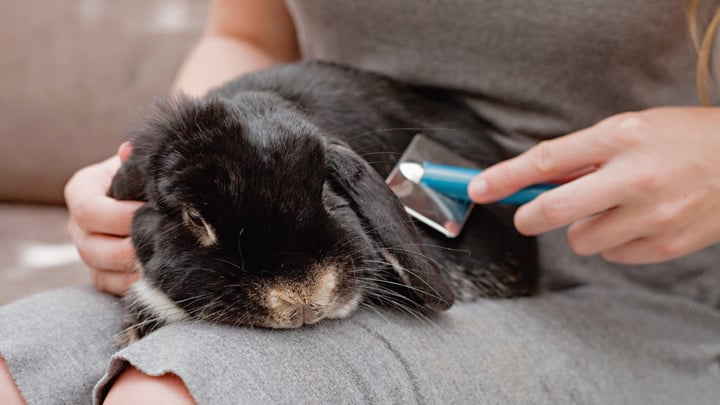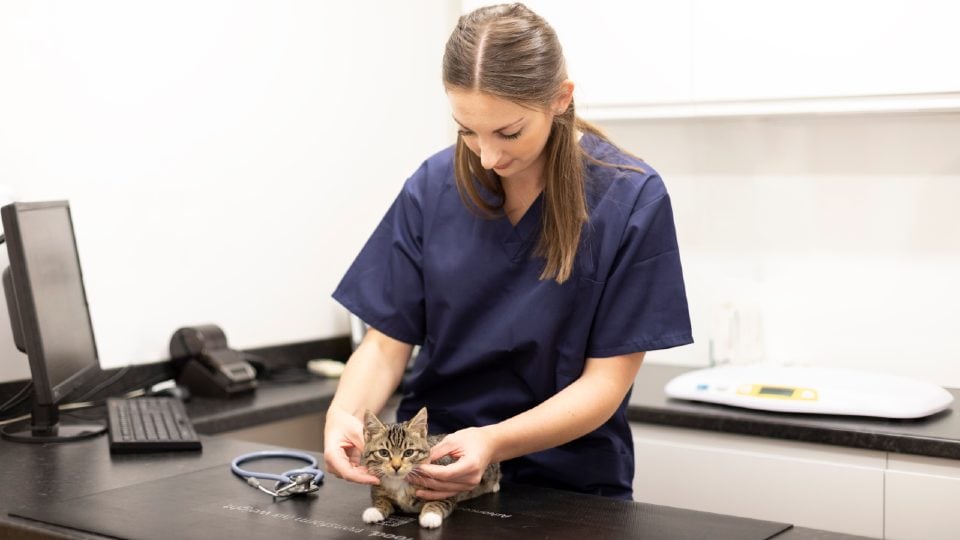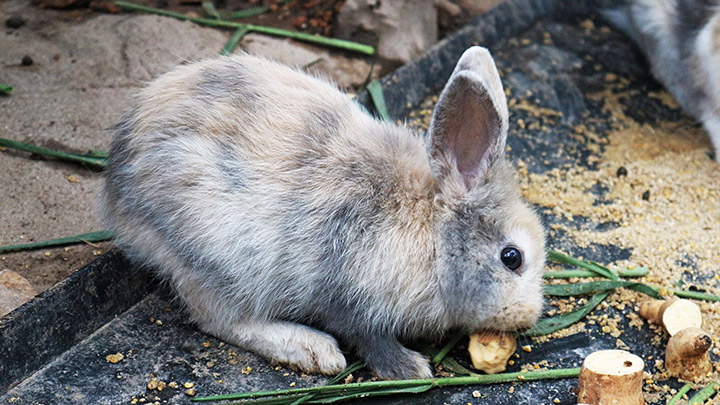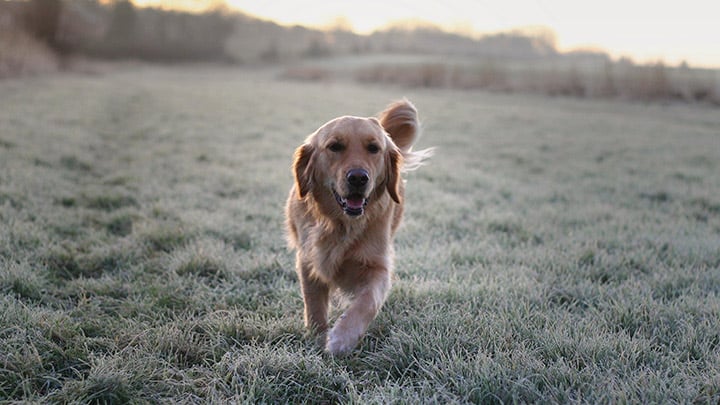Pet Resolutions To Kick-off 2024
January is the month we traditionally reset ourselves, revisit good habits and hope to rid ourselves of the bad ones.

As you’re thinking these through, why not consider some that include your pet? There are several pet care tasks that many of us know we should do more regularly. Every bit of extra effort that you put into your pet will be rewarding and will go towards helping to keep them healthy and happy.
1. Regular grooming

Depending on your pet’s breed and fur type, you may need to brush daily or weekly; your vet will be happy to advise you on what’s best for your pet. They’ll also let you know the best brushes and combs to suit your pet’s coat.
Take a look at our pet grooming advice:
2. Vaccinations
Most owners are aware that regular vaccinations and health checks are an important part of pet ownership. It’s worth contacting your vet and making sure that your pet’s vaccinations are up to date. If they aren’t up to date, it’s worth finding out what you need to do to fully protect your pet.
Take a look at our pet vaccination advice:

It’s even more important to keep vaccinations up to date with new or younger pets – there are some highly dangerous diseases that can start to spread when pets are left unvaccinated.
Regular health checks are also key. This is a good opportunity to discuss any concerns that you may have.
3. Plan your pet's parasite treatment
It’s easy to forget about fleas in the winter, but as we heat our homes, these pesky parasites can spring to life. Preventing fleas as well as ticks and worms is important for your pet’s health. Parasites are not only irritating and painful for your pet, but they can also cause diseases and infections. Protecting your pet is simple but it does need to be done regularly, so planning in advance is essential. Speak to your practice about a Medivet health plan to keep your pet in tiptop condition.
Set out regular ‘deep cleaning days’ a few times a year to fully clean your soft furnishings to remove eggs and larvae that may be lurking within. Your local practice may also be able to post flea and worming treatments to you or you can arrange collection from the practice – read more here.
4. Look at your pet's diet
After the indulgence of December, most people are trying to eat a bit healthier in the New Year. It’s worth thinking about whether your pet has also had a few extra treats. Consistently over-treating your pet will have an impact on their weight – it might creep on gradually and it can be very difficult to shift.
It’s a good idea to weigh out the recommended daily amount of food for your pet’s age and breed to avoid overfeeding. You should then split this out across your pet’s regular feeding times, as individual treats, or in treat toys. Even if this isn’t something you do all the time, it’s a good exercise to do every now and then to make sure portion control doesn’t get out of control, which is easily done.
Many pets are fed on-demand or fed with other pets; it’s harder to control how much is eaten this way. You should try and observe what’s going on in a multiple pet situation; even if it’s only to make sure that one greedy pet isn’t scoffing all the food.

-
Occasional pet treats are fine but pick treats that are low in sugar and starch. Use them sparingly as a reward for good behaviour and reduce the amount of regular food they receive that day.
Your pet’s nutritional needs change as they get older, so it’s a good idea to check whether you need to switch them onto a more suitable diet. Speak to your vet for expert advice, and if you do decide to change, do so gradually to allow your pet to get used to the new diet.
Read more about pet nutrition:
5. Brush their teeth
Regular dental checks and good oral hygiene play an important part in keeping your pet happy and healthy. Cats and dogs are very good at hiding pain and discomfort, so you might never realise there’s a problem. You should be brushing your pet’s teeth a few times a week as a minimum, more if possible.
Look at our latest dental videos for more tips and advice about keeping your pet’s teeth clean:
6. Exercise them more
If you’re planning to take up a new activity this January, consider whether there’s one that your dog can get involved in. Find things you can do to exercise in your local area such as running, walking and exploring. It’s great exercise for both of you, it’s great for bonding, will make you both feel great, and it beats being indoors all the time.
For cats, a new toy is often enough to get them active, particularly if it allows them to flex their hunting instincts.

7. Organise pet insurance
You may already have pet insurance, but if not, it’s something we would recommend. Insurance gives you peace of mind that if the worst happens or your pet develops an illness, you’ve got some financial cover. Accidents and illness can happen at any time (and at any age) and it’s comforting to know that the cost of care will be covered if it’s ever needed.
There are many different types of policies available to suit your pet’s needs; your practice team will be happy to answer any questions you may have about pet insurance. You can also research on the internet to find the best insurer for your needs.
8. Give your pet a fresh start
Things like bedding, blankets, toys and food and water bowls can build up bacteria over time which could make your pet ill or harbour dormant flea eggs. Deep clean their bedding, blankets, toys, food bowls and water bowls to give your pet a fresh start to the year. Make sure you use pet-safe cleaning products and dry everything thoroughly.
If bedding, toys or hutches are starting to show their age, now might be a good time to consider replacing them with newer versions instead.

9. Update your pet's microchip details
Microchips are the best way to ensure your pet can be identified if they ever get lost. In fact, it’s a legal requirement in dogs over the age of eight weeks. Microchips have been the main reason most pets get reunited with owners that may have thought their pet was gone forever, and who doesn’t love a happy ending?

However, if your details aren’t up to date on the system, your pet’s microchip can’t do its job properly. Make it your New Year’s Resolution to set time aside to check your contact details are correct, especially if you’ve moved house recently.
We wish you a happy and healthy 2024!
Speak to your local Medivet practice for more tips and advice.

Medivet Healthcare Plan
On average our clients save an average of £225 with the Medivet Healthcare Plan.
Learn more

Our Pet Care Advice
At Medivet, we’re committed to providing trustworthy, expert advice that helps you care for your pet. Don't miss our latest advice for keeping your pets happy and healthy.
Search advice




